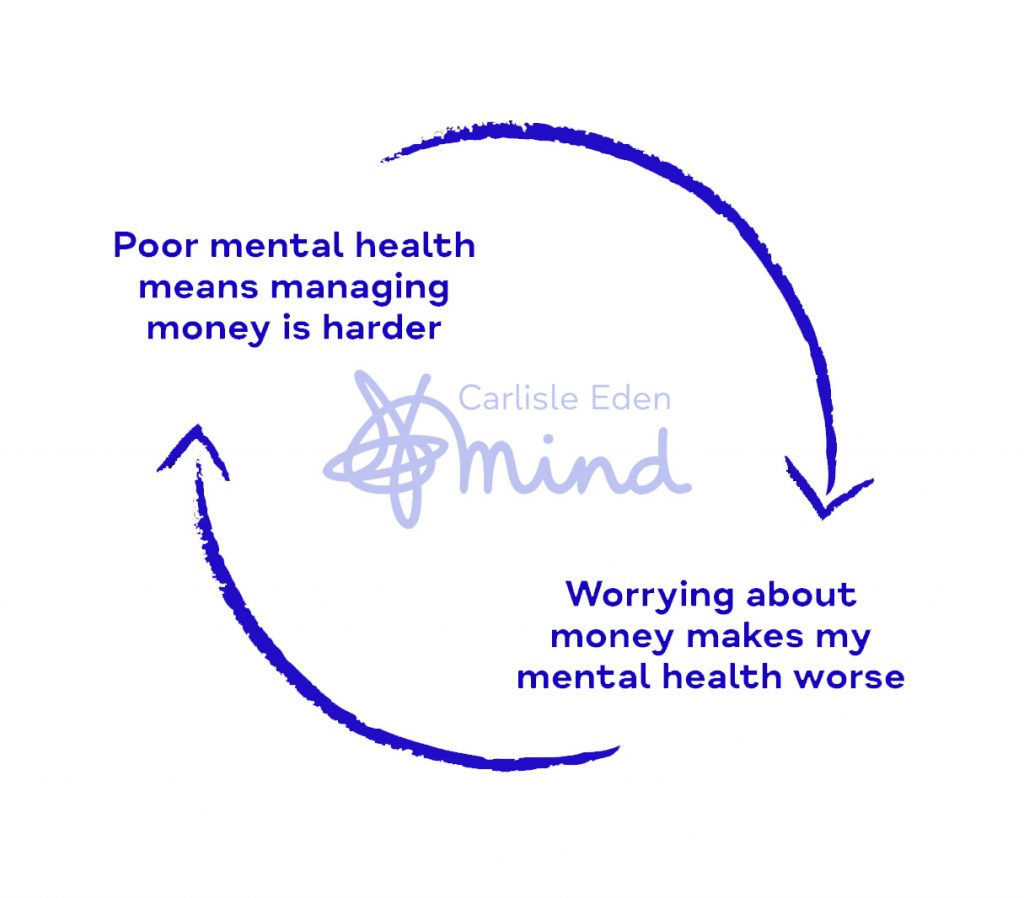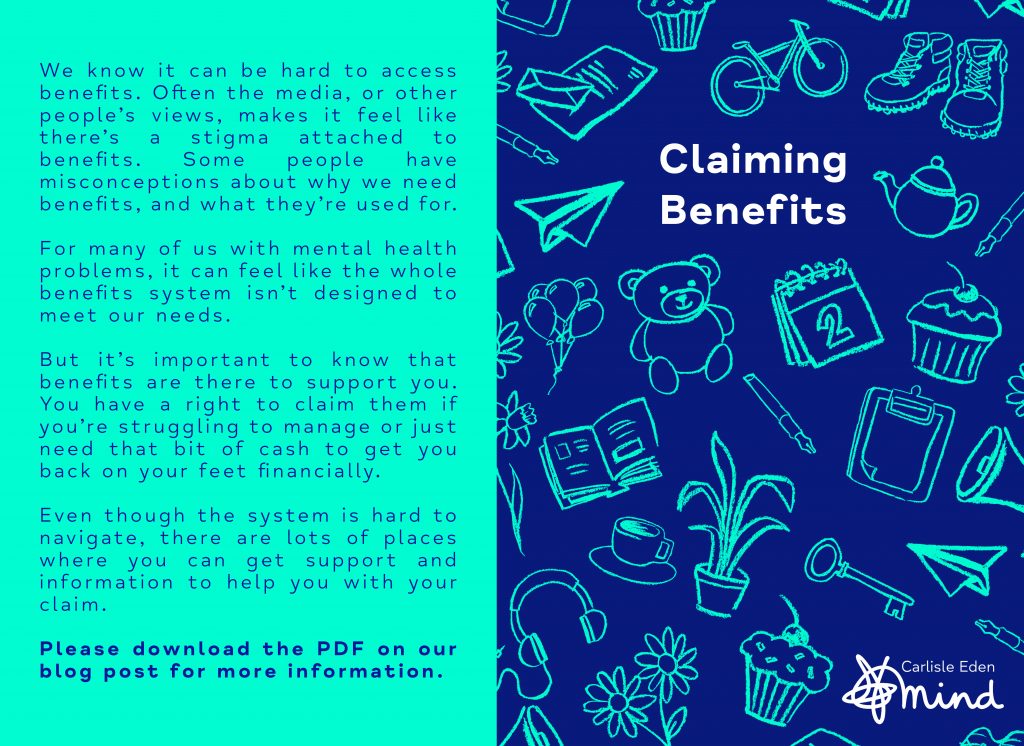
Poor mental health can make earning and managing money harder. And worrying about money can make your mental health worse. It can start to feel like a vicious cycle. Here, you can find out more about organising your finances, claiming benefits when you have a mental health problem, dealing with services, and looking after your mental health when you’re worried about money.

The link between money and mental health
Worries about money can have an impact on your mental health. And your mental health can affect how you manage your money. Learn more about how the two affect each other, and get tips for getting to know your money and mood patterns.
Money problems can affect your mental health
These are some common ways money can affect your mental health:
- Certain situations might trigger feelings of anxiety and panic, like opening envelopes or attending a benefits assessment.
- Worrying about money can lead to sleep problems.
- You might not be able to afford the things you need to stay well. This might be housing, food, water, heating, or treatments like medication and therapy. See our information on what to do if you can’t afford the things you need.
- Money problems can affect your social life and relationships. You might feel lonely or isolated, or like you can’t afford to do the things you want to.
“Not only did seeking help lift my burden financially, it also helped me mentally. Once I’d decided to make a change it gave me a more positive outlook on life.”
Mental health can affect the way you deal with money
These are some common ways your mental health can affect the way you deal with money:
- If you’re feeling low or depressed, you may lack motivation to manage your finances. It might not feel worth trying.
- Spending may give you a brief high, so you might overspend to feel better.
- You might make impulsive financial decisions when you’re experiencing mania or hypomania.
- If your mental health affects your ability to work or study, this might reduce your income.
- You might avoid doing things to stay on top of your money, like opening bills or checking your bank account. You might try to avoid thinking about money completely.
- Having a mental health problem might affect your insurance, so you end up paying more.
“I wish I’d known earlier that getting into debt can be part of having a mental health problem. And I wish I’d been less scared to ask for help.”
Get to know your money and mood patterns
You might find it helpful to take some time to think about how you feel about money and why. For example, if you’ve struggled with money in the past or didn’t have much money growing up, this might affect the way you feel about money now.
You could try answering these questions:
- Are there certain times when you’re more likely to spend money?
- Are there certain times when you’re more likely to save money?
- How does it feel when you spend money?
- Do you feel differently when you’re spending and saving?
- What are the emotions and feelings you think of, when you think about money?
- Which aspects of dealing with money make your mental health worse? For example, it could be things like attending appointments, opening envelopes, confrontation, or being misunderstood.
It might help to keep a diary of your spending and your mood, to record what you spend and why. You could record how you were feeling before and afterwards too. Once you’ve done this, you might start to feel like you understand your habits and patterns around money a bit more. Knowing these could help you plan ahead for difficult times.
See our information on planning ahead with your money.
Support for your mental health
- Talk to a trusted friend or family member.
- Speak to a support worker or health professional, like your GP.
- Access You in Mind. We are here for you
- Contact the Samaritans. Money worries can make you feel trapped and hopeless. If you’re finding it difficult to see a way forward, you can talk to Samaritans for free by calling 116 123.
- Claiming benefits, see our blog post and PDF download for more information on claiming benefits.

Support with managing your money
- Use the tools on the Money Helper website for people who are living on a squeezed income. These include tools for tracking your spending, saving money and getting help while you’re working.
- If you’re a student, speak to student services or your tutor. They could help you apply for extra grants or bursaries. See our information on managing your money as a student.
- Find a foodbank near you.
- The Mental Health and Money Advice website has guides on claiming benefits when you have a mental health problem.
- Get help with accessing benefits and grants from Turn2Us.
- Speak to someone from Citizens Advice. You could get free advice on your rights around money, housing and legal problems.
- Read tips about managing money from the Money Saving Expert.
- See UK Government advice on managing household, energy and transport costs on the Help for Households website.
Warm Spots
A Warm Spot offers a warm, welcoming space for people to visit this winter if they need it. They are run by a range of different organisations including churches, village halls, local councils and libraries.
There are hundreds of spots across Cumbria. They are free, friendly and you won’t be judged
If you need help staying warm, visit cumbria.gov.uk/warmspots


















